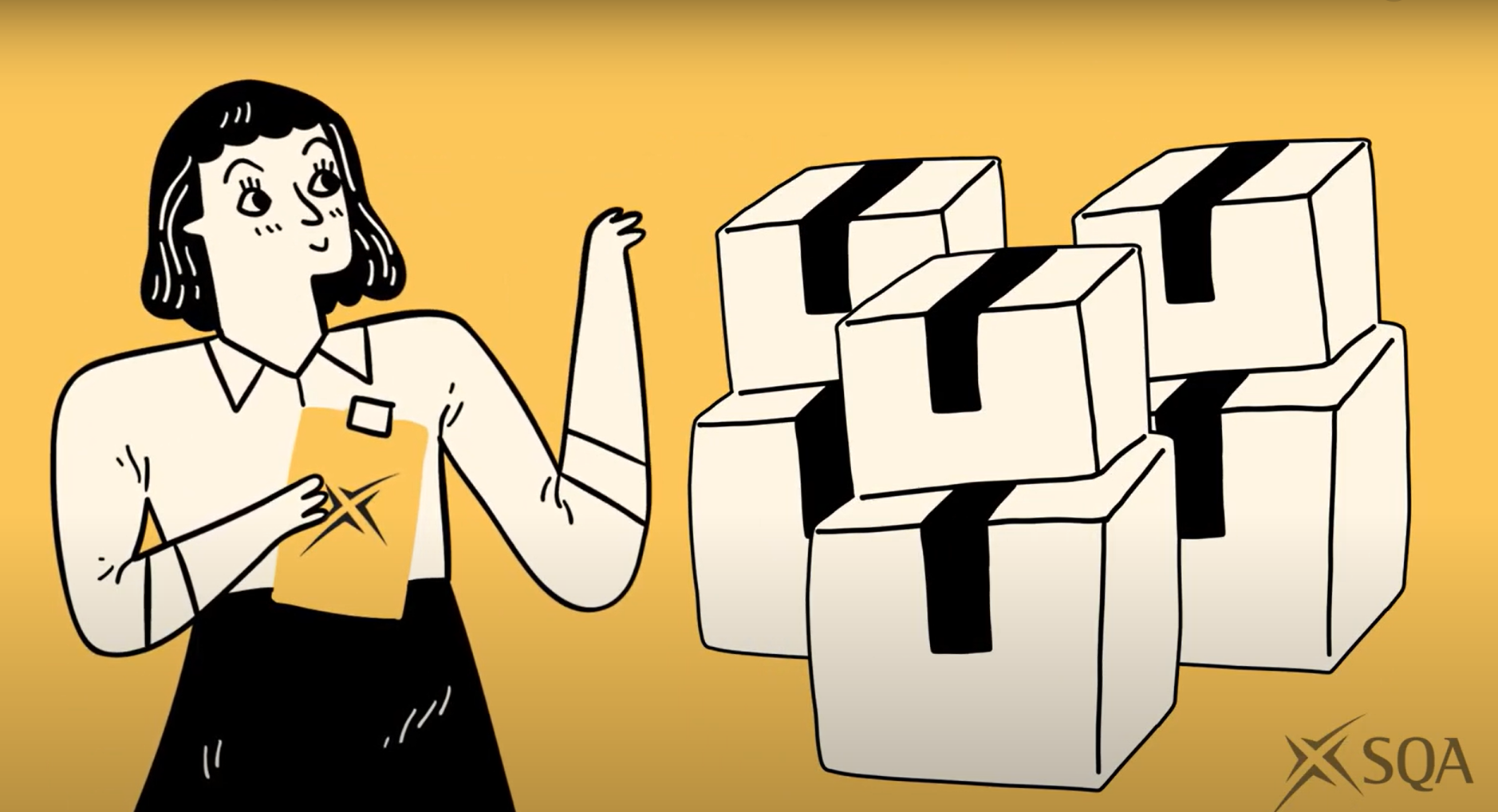Ever wondered what happens from the time a learner completes their exam to receiving their results in Scotland? As we approach Results Day, our Director of Policy, Analysis and Standards, Martyn Ware, takes a moment to share the step-by-step process SQA undertakes in awarding its graded national qualifications at National 5, Higher and Advanced Higher.
Results Day is an exciting time for so many people across Scotland each year. For learners, it can be a day of mixed emotions, representing as it does the culmination of a number of years of hard work.
For SQA, getting to Results Day is a milestone each and every year. It gives us the opportunity to highlight and celebrate the incredible and varied achievements of learners and of the teachers, lecturers, parents and carers who taught, supported and encouraged them. It also reflects the hard work and efforts of so many to maintain the quality and standards of Scotland’s qualifications.To help you understand how we arrive at the final results, I wanted to take a moment to give you an insight into that work. We’ve also put together some supporting videos to help you better understand the process.
SQA’s process for awarding graded National Courses at National 5, Higher and Advanced Higher takes place over many months and follows a number of carefully managed stages.
Setting exams
For each qualification, the Principal Assessor (an experienced teacher or lecturer who also leads the work to develop and mark our assessments for each qualification) and their team (also subject teachers) develop question papers and draft marking instructions. This development activity is supported by robust quality assurance checks to ensure all assessments are valid, reliable, fair and accessible.
After exams are sat and coursework is submitted
After the day of the exam, a process called standardisation is led by the Principal Assessor and supported by their team leaders. Its main purpose is to finalise the detailed marking instructions based on a review of a sample of responses from learners who have sat the question papers and completed coursework.
Marker meetings
Markers (all experienced subject teachers) meet and are trained by the Principal Assessor and their team, to ensure they all have a clear understanding of the approach to marking and of the specific marking instructions for the assessment being marked. The meetings allow markers to explore and debate the standard they are being asked to apply. This debate is critical to a clear understanding of the standard and so to markers’ ability to apply it accurately and consistently in their marking.
Marker check
A sample of marked exam scripts is randomly selected from each marker and reviewed by a member of the exam team to ensure they have applied the marking instructions as agreed at the markers’ meeting and that this has been done consistently. If not, adjustments are made.
Grade boundaries
Once all the marking is complete, grade boundary meetings determine the minimum marks needed to get an A, B, C, or D grade or a ‘No Award’ result. Grade boundaries help ensure assessments have worked as planned and that standards are consistent from one year to the next. Every year, we review how each course assessment has performed in order to set grade boundaries fairly.
Finalisation
Finalisation is a final review of selected scripts before certification. Its purpose is to seek to ensure that any variability in marking does not have an impact on the final grade awarded. This final review is carried out by the senior exam team, who have been involved in marker check.
Once you’ve received your results
If any learner is unhappy about the grade(s) they have received, they can appeal using SQA’s free appeals service. Learners can request an appeal directly from SQA or through their school or college.
The care and attention given to each of these stages and the knowledge, experience and skill that the Principal Assessor and their team bring to them means that learners can be confident that the qualifications they receive are credible and fair, and reflect the knowledge, understanding and skills they have acquired. Universities, colleges and employers can be confident that standards and integrity are maintained.
Final thoughts
You can find out more about the process from exams to results, as well as grade boundaries on our website.
More information on our Appeals Service, as well as the range of resources available to support learners on Results Day and beyond, is available at the SQA learner hub at sqa.org.uk/results.
I send learners across Scotland who will receive their results on Tuesday, my best wishes for their future success.







